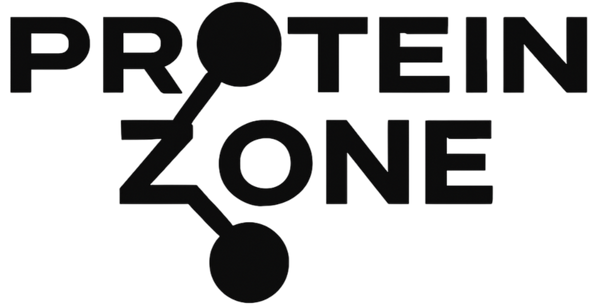Berberine HCl Complex
Berberine-containing plants—barberry, Coptis, goldenseal—appear in both Chinese and Ayurvedic traditions as golden, bitter allies for digestive and metabolic harmony. In kitchens and clinics alike, their vivid pigment signaled potency. Practitioners used decoctions and powders to encourage comfortable digestion and balanced internal terrain.
Refined as berberine HCl, this alkaloid continues to be valued for broad metabolic support. People reach for it to promote healthy glucose handling, balanced lipids, and a well‑tuned gut environment. Pairing standardized extracts with simple excipients keeps the focus on purity and consistency, echoing the old principle that a little well‑made bitter can go a long way.
Modern routines often combine berberine with fiber‑rich meals, movement, and regular sleep—habits that work in concert with the herb’s traditional strengths.
These statements have not been evaluated by the Food and Drug Administration. This product is not intended to diagnose, treat, cure, or prevent any disease.
Purchase Berberine HCl Complex HERE
DETAILED INGREDIENTS LIST
GRANULAR BERBERINE HYDROCHLORIDE EXTRACT 97% (BARK)
Introduction & History:
Berberine is an isoquinoline alkaloid found in the bark of plants such as Phellodendron and Coptis species. It has been used for thousands of years in Traditional Chinese Medicine and Ayurveda for supporting digestion, immunity, and metabolic health. Modern extraction methods yield standardized forms such as berberine hydrochloride at 97% purity for consistent potency.
Molecular Function & Mechanism:
Berberine influences cellular energy regulation through activation of AMP-activated protein kinase (AMPK), a master regulator of glucose and lipid metabolism. It improves insulin sensitivity, supports healthy blood sugar regulation, and promotes balanced lipid profiles. Berberine also demonstrates antimicrobial effects against bacteria, fungi, and protozoa.
Modern Use & Theory:
High-purity berberine hydrochloride extracts are used for metabolic support, healthy weight management, cardiovascular health, and blood sugar balance.
GRANULAR BERBERINE HYDROCHLORIDE EXTRACT 8% (BARK/ROOT)
Introduction & History:
Berberine can also be extracted from both the bark and roots of traditional medicinal plants, including Coptis chinensis and Berberis vulgaris. An 8% extract provides a more gentle potency while still delivering the benefits of naturally occurring berberine.
Molecular Function & Mechanism:
Like higher-potency extracts, berberine activates AMPK, modulates glucose and lipid metabolism, and supports healthy microbiome balance through antimicrobial activity. Lower concentrations are sometimes used for broader applications or where a milder dose is preferred.
Modern Use & Theory:
This extract is used for digestive, immune, and metabolic support, particularly in formulations where a balance of potency and tolerability is desired.
CELLULOSE (VEGETABLE CAPSULE)
Introduction & History:
Cellulose, derived from plant cell walls, is widely used in supplement manufacturing as a vegetarian alternative to gelatin.
Molecular Function & Mechanism:
As a capsule material, cellulose is inert and dissolves readily in the digestive tract, releasing active ingredients without interacting with them.
Modern Use & Theory:
Used primarily to create vegetarian-friendly capsules that safely and consistently deliver supplement contents.
MICROCRYSTALLINE CELLULOSE (MCC)
Introduction & History:
Microcrystalline cellulose is a refined, plant-derived form of cellulose long used in pharmaceuticals and supplements as a safe excipient.
Molecular Function & Mechanism:
MCC functions as a binder and filler. It provides bulk to capsules and tablets, ensures even distribution of active ingredients, and contributes to structural stability. It is inert and passes safely through the digestive tract.
Modern Use & Theory:
Used to improve capsule consistency, ensure accurate dosing, and stabilize formulations without affecting nutrient activity.
L-LEUCINE
Introduction & History:
L-leucine is one of the nine essential amino acids, meaning it cannot be produced by the body and must come from diet or supplementation. It has been recognized since the 19th century and is abundant in protein-rich foods.
Molecular Function & Mechanism:
L-leucine is a branched-chain amino acid (BCAA) central to protein synthesis and muscle metabolism. It activates the mTOR pathway, a key regulator of muscle growth and repair. In supplement manufacturing, it is sometimes used as a natural flow agent to prevent clumping.
Modern Use & Theory:
Leucine supports muscle health, recovery, and protein utilization. As an excipient, it improves powder flow and capsule consistency.
OLIVE OIL
Introduction & History:
Olive oil, pressed from the fruit of Olea europaea, has been a cornerstone of Mediterranean diets and medicine for thousands of years.
Molecular Function & Mechanism:
Rich in monounsaturated fats, particularly oleic acid, olive oil supports cardiovascular health, antioxidant defenses, and absorption of fat-soluble nutrients. In supplements, it is often used as a carrier or stabilizer for oil-based ingredients.
Modern Use & Theory:
Olive oil is valued for heart and metabolic health as well as for its role in enhancing bioavailability of active compounds in softgel or capsule formulations.
